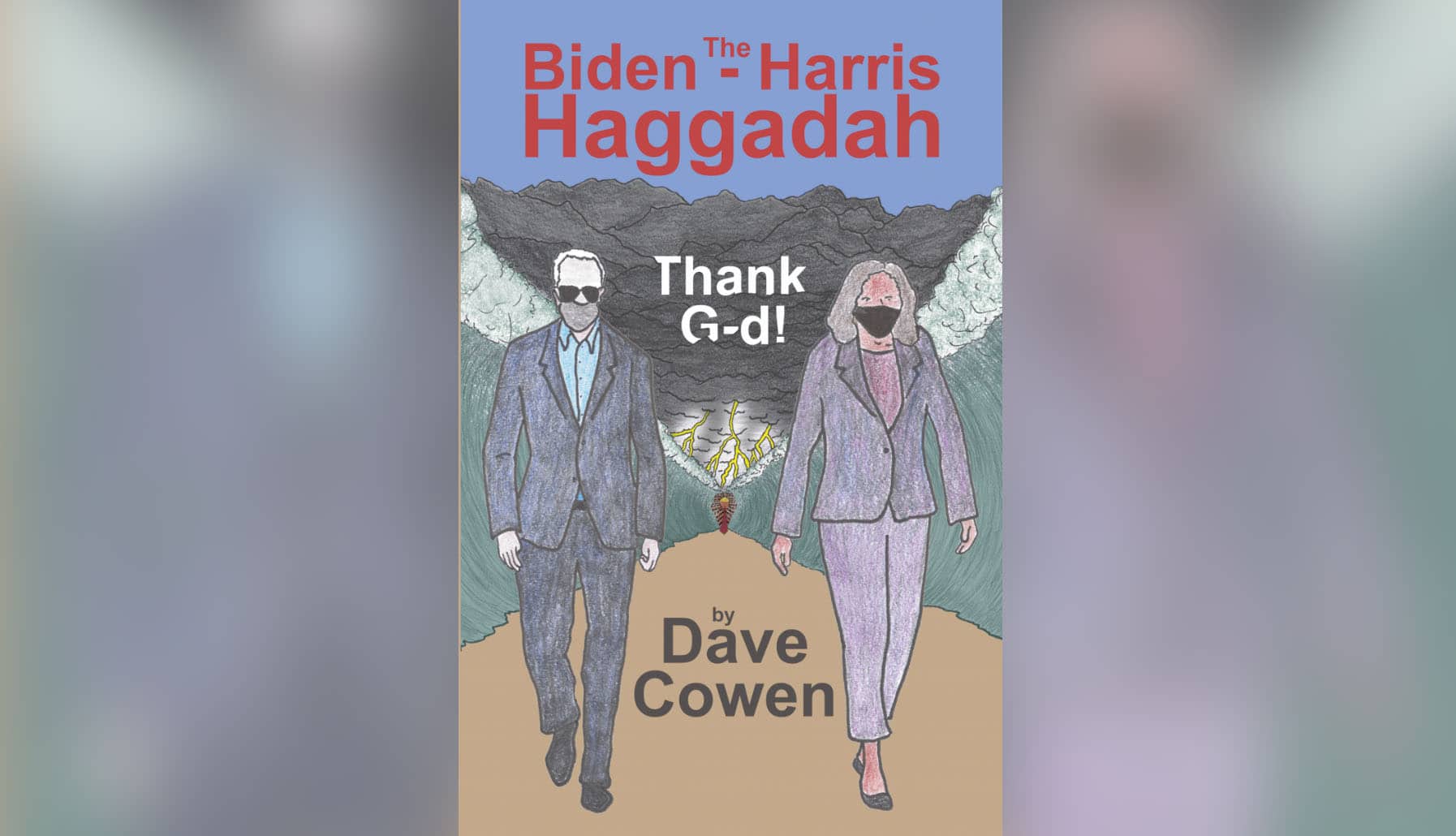
Dave Cowen likes when the “weird thing kinda works out” in life. After writing comedy and satire for The New Yorker and McSweeney’s, he decided to embrace his favorite Jewish holiday by publishing his first Haggadah in February 2018.
“The Trump Passover Haggadah,” was created out of his frustration and disappointment toward the Trump administration. The Los Angeleno said he didn’t expect anyone to read it, just his family and friends. When it received rave reviews from community members and strangers on Amazon, he released a second one in March 2019. This time, he parodied his favorite TV show, “Seinfeld,” and the “Yada Yada Haggadah: A Sitcom Seder” was born.
“I’ve always had an interest in political satire, first and foremost,” Cowen, 36, said. “But I’ve always been really spiritual. I’ve really embraced that side of myself. I’ve been studying Kabbalah and numerology and it always would seep into my secular work in a strange way. At a certain point, I realized I should embrace that and… trust that other people are going to like it.”
This year, Cowen decided to create a third satirical Haggadah that celebrates the new president and vice president. Released on Feb. 1 via Amazon, “The Biden-Harris Haggadah: Thank G-d!” offers laughter for anyone who needs it at their upcoming seder.
The new Haggadah, like all of Cowen’s Haggadot, features skits, prayers, songs and the Passover story told through the perspectives of President Joe Biden, First Lady Jill Biden, Vice President Kamala Harris, Second Jewish Gentleman Doug Emhoff and Dr. Anthony Fauci. With a Passover parody of Cardi B’s “WAP,” the comedic Haggadah ends with a page honoring some of Cowen’s favorite Jewish comedians.
The author said that the “Biden-Harris Haggadah” is intended to be a breath of fresh air, not just for readers but for the writer, who is excited to celebrate a new administration and the Jewish leaders working with them.
“I wish [The Trump Haggadah] didn’t exist. I wish we didn’t think of him as this Pharaoh ruling over us. But it’s what history was,” he said. “I was reading about the history of Haggad[ot] and people even made Haggad[ot] about Hitler back in the day. People used Haggad[ot] to talk about suppression because [The Exodus story is] a story of freedom and enslavement. There’s a tradition of using political satire throughout the Haggad[ot]. I think this is in that tradition.”
Cowen says a great way to approach parody Haggadah writing is having it, “come from a place of understanding [and] a place of love.” Passover was always a big holiday for Cowen and his family. Not only because Passover fell around his birthday, but because it was an opportunity to celebrate the holiday two nights in a row, two completely different ways. One seder was traditional with family friends and the second was laid back and creative with only family.
He used this format when creating his series of Haggadot. Cowen researched many Haggadot before writing his own and was inspired by a multitude of Jewish authors before him, including Lillie Cowen. While there is no relation, Cowen said Lillie Cowen’s 1904 “Cowen Haggadah” (which sold 295,000 copies by 1935) was one of the first successful Jewish-American Haggadot.
The “Biden-Harris” author also loves how there is a growing niche for unique and personal Haggadot. “There is a huge market for these books because people are collecting them every year,” he said. “People have these collections of them that span their whole lives.”
He said a game changer in the Passover resource world is haggadot.com because it helps people create quirky Haggadah pages that modernize the ancient text. Users can also find selections of Cowen’s work on haggadot.com that can be downloaded and utilized for different seders.
“These Haggadahs are helpful because … you can mix in your own. You take different pieces of it for different times,” Cowen said “That’s why it’s so great you can have two nights…you can do something completely different and free and I think that is why the two-night system is ideal for that.”
In addition to revamping Haggadot, Cowen said he is also trying to modernize the seder itself. Two years ago, Cowen and friends Danielle Steckler and Jaime Factor hosted a cannabis seder called Cannavore Supper. The seder infused cannabis into the meal while attendees read Cowen’s “Yada Yada Haggadah.” This year, the same team is gathering virtually for a similar seder experience. (You can sign up for the March 28 event here.) It’s not for everyone, Cowen admits, but it’s a different way for Jews to partake in a seder experience.
Cowen welcomes the fact that there is no one way to celebrate Passover. He loves new interpretations of the Passover text and the ways people incorporate different current events into a Haggadah.
Cowen welcomes the fact that there is no one way to celebrate Passover.
He also loves the speed in which they can be produced. It can take at least a year to put a book together with a literary agent, which is why he likes utilizing Amazon. Amazon allowed him to publish his work quickly and sell it at a reduced price that is accessible for everyone. He encourages others who want to publish their own Haggadot to use the platform to get their work out there.
“You don’t want to plan them so far ahead because you want them to be timely, especially in the political satire field,” Cowen said. “I like Haggadot.com and Amazon. A lot of people are self-publishing. There’s sort of this community now. It’s fun to see that dissemination out there of people sharing their work.”
Click here to purchase a virtual or print copy of “The Biden-Harris Haggadah: Thank G-d!” For more information on Cowen’s cannabis virtual seder, click here.
Related posts:
Views: 0
 RSS Feed
RSS Feed

















 March 20th, 2021
March 20th, 2021  Awake Goy
Awake Goy  Posted in
Posted in  Tags:
Tags: 
















